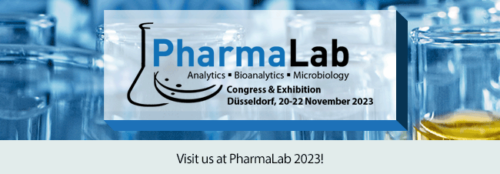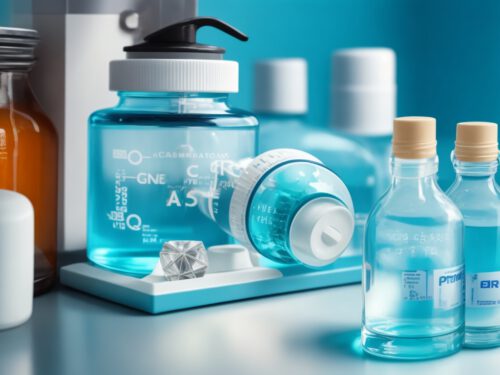Introduction
In the pharmaceutical industry, safety is of paramount importance. Strict quality standards must be followed in the manufacturing of drugs to ensure that the products are effective and safe. One aspect that is gaining increasing importance is Adventitious Virus Testing, also known as testing for unintended viruses. In this blog post, we will discuss the significance of this test in Good Manufacturing Practice (GMP) production and why it is essential.
What are Adventitious Viruses?
Adventitious viruses are viruses that can unintentionally be present in a biological product, such as vaccines or biopharmaceutical drugs. These viruses do not originate from the cell lines or vaccine strains used, but they may enter the product during the manufacturing process. Adventitious viruses can be both animal and human viruses, posing a potential risk to the safety and efficacy of the end product.
Why is Adventitious Virus Testing important?
Adventitious Virus Testing plays a crucial role in ensuring the safety of drugs. It enables the detection and identification of unintended viruses that may have been introduced during manufacturing. The test allows for the early detection of potentially harmful contaminations before they can pose serious health risks.
Adventitious Virus Testing in GMP Production
In GMP production, strict guidelines and procedures are followed to ensure the manufacturing of high-quality drugs. Adventitious Virus Testing is an integral part of these processes. Here are some reasons why it should be conducted in GMP production:
- Ensuring patient safety: Adventitious Virus Testing helps minimize the risk of potential virus contaminations in drugs. The test enables manufacturers to ensure that their products are free from harmful viruses, thus guaranteeing patient safety.
- Compliance with regulatory requirements: Pharmaceutical companies must comply with the guidelines and regulations set by health authorities. Adventitious Virus Testing is a requirement in GMP guidelines, ensuring that companies meet regulatory standards and fulfill regulatory obligations.
- Quality control and risk minimization: Adventitious Virus Testing allows manufacturers to control their production processes and minimize risks. The test enables early detection of contaminations, enabling appropriate measures to be taken to ensure the quality of the end product.
- Avoidance of production failures: Viral contamination in GMP production can lead to serious consequences, such as production failures or recalls of already marketed drugs. Adventitious Virus Testing enables timely detection and elimination of potential contaminations, avoiding costly failures and maintaining production continuity.
- Protection of company reputation and credibility: A company that demonstrably conducts stringent controls and tests to ensure the safety and quality of its products builds trust among consumers, professionals, and regulatory authorities. Adventitious Virus Testing is an important element of the quality management system, showcasing the company’s commitment to the highest standards.
- Preparedness against new viruses: With the emergence of new viruses and infectious diseases, it is crucial for the pharmaceutical industry to act proactively in identifying and combating potential threats. Adventitious Virus Testing allows for monitoring and identification of new viruses, enabling timely response to current or future challenges.
Conclusion
Adventitious Virus Testing is an essential component of GMP production in the pharmaceutical industry. It ensures patient safety, compliance with regulatory requirements, quality control and risk minimization, and avoidance of production failures. Through the test, potential virus contaminations can be detected, and appropriate measures can be taken to ensure the quality of drugs. It is a critical step in ensuring the safety, efficacy, and integrity of pharmaceuticals and protecting the company’s reputation. In a time where new viruses and infectious diseases can emerge, Adventitious Virus Testing is an indispensable part of the pharmaceutical industry’s quality management system. Through continuous monitoring and adaptation, manufacturers can respond to potential threats and protect the health and well-being of patients worldwide.
Links and Resources on “Adventitious Virus Testing”
- „European Pharmacopoeia“ – Kapitel 2.6.16: Viral Safety of Biological Substances for Human Use
- ICH Guideline Q5A(R2) on viral safety evaluation of biotechnology products derived from cell lines of human or animal origin – Scientific guideline
- „Guidance for Industry – Characterization and Qualification of Cell Substrates and Other Biological Materials Used in the Production of Viral Vaccines for Infectious Disease Indications“ – US Food and Drug Administration (FDA)
- „Current Testing Methods and Challenges for Detection of Adventitious Viruses“ – PDA Journal of Pharmaceutical Science and Technology November 2011, 65 (6) 627-633; DOI: https://doi.org/10.5731/pdajpst.2011.00831
- Barone, P.W., Wiebe, M.E., Leung, J.C. et al. Viral contamination in biologic manufacture and implications for emerging therapies. Nat Biotechnol 38, 563–572 (2020). https://doi.org/10.1038/s41587-020-0507-2
- Caitlin Morris, Yong Suk Lee, Seongkyu Yoon, Adventitious agent detection methods in bio-pharmaceutical applications with a focus on viruses, bacteria, and mycoplasma, Current Opinion in Biotechnology, Volume 71, 2021, Pages 105-114, ISSN 0958-1669, https://doi.org/10.1016/j.copbio.2021.06.027.
Testing at Minerva Analytix
We are pleased to conduct analysis of your products using nucleic acid amplification technology for detecting viruses and other contaminants.”






